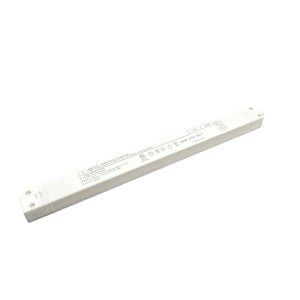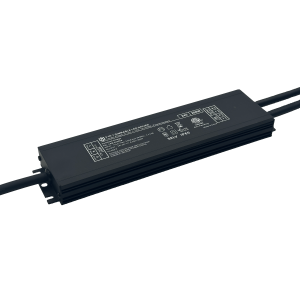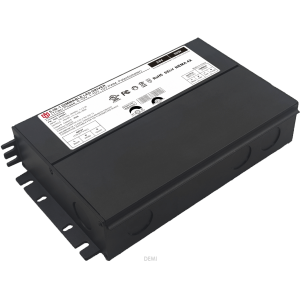The New Darling of Commercial Lighting! TRIAC Dimming Power Supplies Elevate Store Branding
Unlocking Atmosphere Through Precision Control
Modern retailers demand more than basic illumination—they crave dynamic environments that align with their brand DNA. Enter TRIAC dimming power supplies, the unsung heroes transforming generic store layouts into immersive experiences. Unlike traditional on/off systems, these smart units enable silky-smooth brightness adjustments across thousands of luminosity levels. Picture a luxury boutique where warm golden tones gradually intensify as evening approaches, or a tech showroom shifting from cool daytime clarity to dramatic spotlight effects after hours. Such granular control isn’t just fancy; it’s strategic storytelling through light.
Seamless Integration for Cohesive Visual Merchandising
What sets TRIAC systems apart is their plug-and-play compatibility with existing LED fixtures. No complex rewiring required—retailers can retrofit entire spaces in days, not weeks. This flexibility matters when launching seasonal campaigns: imagine swapping pastel hues for festive reds without replacing bulbs. Leading brands like Zara and Apple have already adopted this technology, using dimming curves to highlight product textures (think cashmere sweaters glowing under softer light) or create depth perception on mannequin displays. The result? Customers subconsciously associate your brand with sophistication and innovation.
Slashing Operational Costs Without Sacrificing Impact
Energy efficiency isn’t a bonus here—it’s built into the DNA of TRIAC dimmers. By automatically scaling power output to match actual needs (say, dimming unused aisles by 40%), stores cut electricity bills by up to 35% annually. But there’s another hidden benefit: extended LED lifespan. When lights operate below maximum capacity, thermal stress decreases dramatically, pushing replacement cycles beyond 50,000 hours. For chain stores managing hundreds of locations, this translates to six-figure savings on maintenance alone. Plus, many models support smart building systems, allowing centralized management via tablets or cloud platforms.
Crafting Memorable Customer Journeys
Great lighting does heavy lifting for marketing teams. Studies show shoppers spend 27% longer in well-lit zones with adjustable warmth tones. Use TRIAC controls to orchestrate “light recipes” throughout the day: energizing morning whites during breakfast rushes at cafés, relaxing indigo blues in spa sections post-noon, and vibrant saturation during weekend sales events. Some forward-thinking designers even sync dimming patterns with music playlists—creating multisensory triggers that boost dwell time and basket sizes. It’s not just about seeing products clearly; it’s about making them irresistible.
Future-Proofing Your Brand Image
As sustainability becomes non-negotiable for Gen Z consumers, TRIAC systems offer dual advantages: they reduce carbon footprints while enabling creative expression. Case in point: Patagonia’s flagship store uses programmable dimming to simulate natural sunlight rhythms, reinforcing their eco-conscious narrative. Meanwhile, beauty counters leverage warm-to-cool transitions to demonstrate makeup versatility under different lighting conditions. When competitors still rely on harsh overhead floodlights, early adopters gain instant differentiation. After all, in a world where 90% of purchasing decisions happen subconsciously, why leave ambiance to chance?
The Silent Salesperson Working Overtime
Consider this real-world math: A typical supermarket installs 800+ light points. With TRIAC dimmers set to 75% baseline during off-peak hours, annual energy savings hit $12,000+ per location. Multiply that across ten stores? You’ve got an extra marketing budget for holiday campaigns. Better yet, intelligent models learn traffic patterns autonomously—dimming storage rooms automatically when staff aren’t present. Some advanced setups even geolocate sunrise/sunset times to optimize dayparting strategies. It’s like having an AI lighting director working 24/7 without coffee breaks.
Why Industry Insiders Are Switching Now

Lighting designers rave about TRIAC’s color rendering index (CRI>90) compatibility with premium materials—diamonds sparkle truer, fabric weaves appear richer, food colors pop fresher. Architectural firms specify them in bid documents because clients demand scalability: start with foundational wiring today, add zoning controls tomorrow. Even property developers factor future-proofed electrical rooms into lease premiums. As one retail CMO put it: “If our logo is the face of our brand, then intelligent lighting is its voice.” And right now, that voice carries further than ever before.
 In heritage architecture prote
In heritage architecture prote
 When small-batch customization
When small-batch customization
 Have the electromagnetic emiss
Have the electromagnetic emiss
 When Triac dimmable power supp
When Triac dimmable power supp
